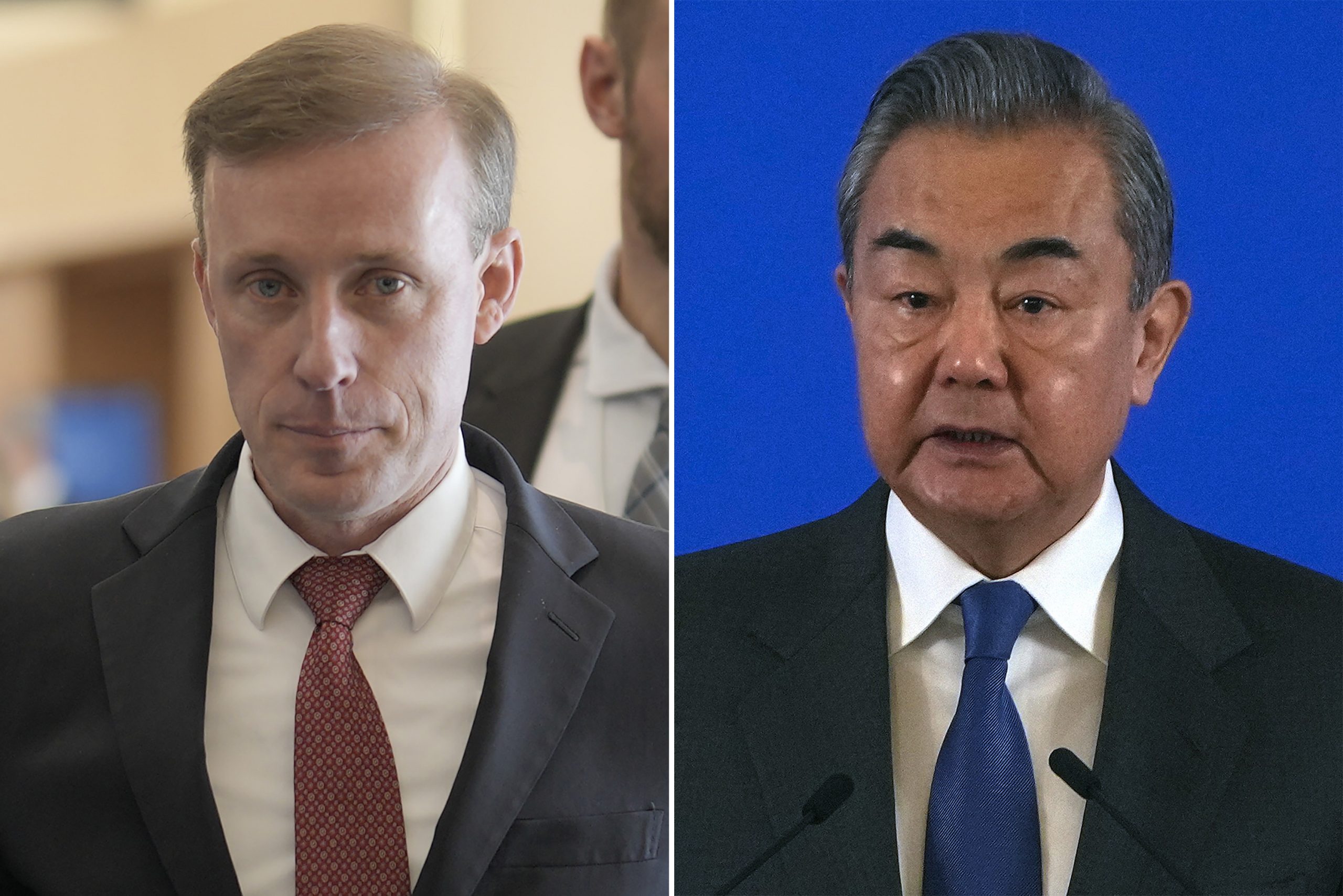U.S. national security adviser Jake Sullivan pressed Chinese Foreign Minister Wang Yi during talks in Thailand to use China’s influence with Iran to ease tensions in the Middle East. The officials also agreed to work toward arranging a call between President Joe Biden and Chinese leader Xi Jinping.
The meetings Friday and Saturday in Bangkok, which followed up on the presidents’ discussions in November in California, took place after a ruling-party candidate opposed by Beijing won Taiwan’s recent presidential election and U.S. and Chinese military officials resumed a once-frozen dialogue. They played out as attacks by Iran-backed Houthi rebels in Yemen continue to threaten global shipping in the Red Sea.
[time-brightcove not-tgx=”true”]
A senior U.S. official said Sullivan cited China’s extensive economic leverage over Iran and emphasized that the destabilizing effect of the Houthi attacks on international commerce. The official noted that China has publicly called for lower tensions, but said it was too soon to tell whether Beijing was using its diplomatic muscle to press Tehran on the matter. The official was not authorized to publicly discuss the private conversations between Sullivan and Wang and spoke on condition of anonymity.
The Chinese Foreign Ministry said Wang said Washington should stand by a commitment not to support independence for Taiwan. Wang said Taiwan’s election, won by Lai Ching-te, the current vice president, did not alter the Chinese position that the island is part of China and that the biggest challenge in U.S.-China relations is the issue of “Taiwan independence,” according to a statement from the ministry.
Biden has said he does not support independence, but U.S. law requires a credible defense for Taiwan and for the U.S. to treat all threats to the island as matters of “grave concern.”
The U.S. official said it was not clear when the next Biden-Xi conversation would happen, but that the officials hoped it would take place in the coming months.
Wang and Sullivan previously met on the Mediterranean island nation of Malta and in Vienna last year before the Biden-Xi meeting in California.
In November, both sides showcased modest agreements to combat illegal fentanyl and reestablish military communications, keeping the relationship from growing any worse. The U.S.-China Counternarcotics Working Group is set to hold its first meeting on Tuesday. American officials say fentanyl and its precursors are largely manufactured in China.
China claims self-ruled Taiwan as its own territory and in recent years has shown its displeasure at political activities in Taiwan by sending military planes and ships. Earlier Saturday, Taiwan’s defense ministry said China had sent more than 30 warplanes and a group of navy ships toward the island during a 24-hour period, including 13 warplanes that crossed the midline of the Taiwan Strait — an unofficial boundary that’s considered a buffer between its territory and the mainland.
Wang also said China and the U.S. should use the 45th anniversary of the establishment of diplomatic relations between the two countries this year as an opportunity to reflect on past experiences and treat each other as equals, rather than adopting a condescending attitude.
The countries should “be committed to mutual respect, peaceful coexistence, and win-win cooperation, building a correct way for China and the U.S. to interact,” the statement quoted Wang as saying.
Taiwan has said six Chinese balloons either flew over the island or through airspace just north of it, days after the self-governing island held its election. Lai’s Democratic Progressive Party largely campaigned on self-determination, social justice and a rejection of China’s threats.
Apart from cross-strait issues, Sullivan and Wang also discussed Russia’s war against Ukraine, the Middle East, North Korea, the South China Sea, and Myanmar, the White House said. Sullivan and Wang talked about progress toward holding a dialog this spring between U.S. and Chinese officials on artificial intelligence.
Sullivan highlighted that although Washington and Beijing are in competition, both sides have to “prevent it from veering into conflict or confrontation,” according to a White House summary of the meeting.

